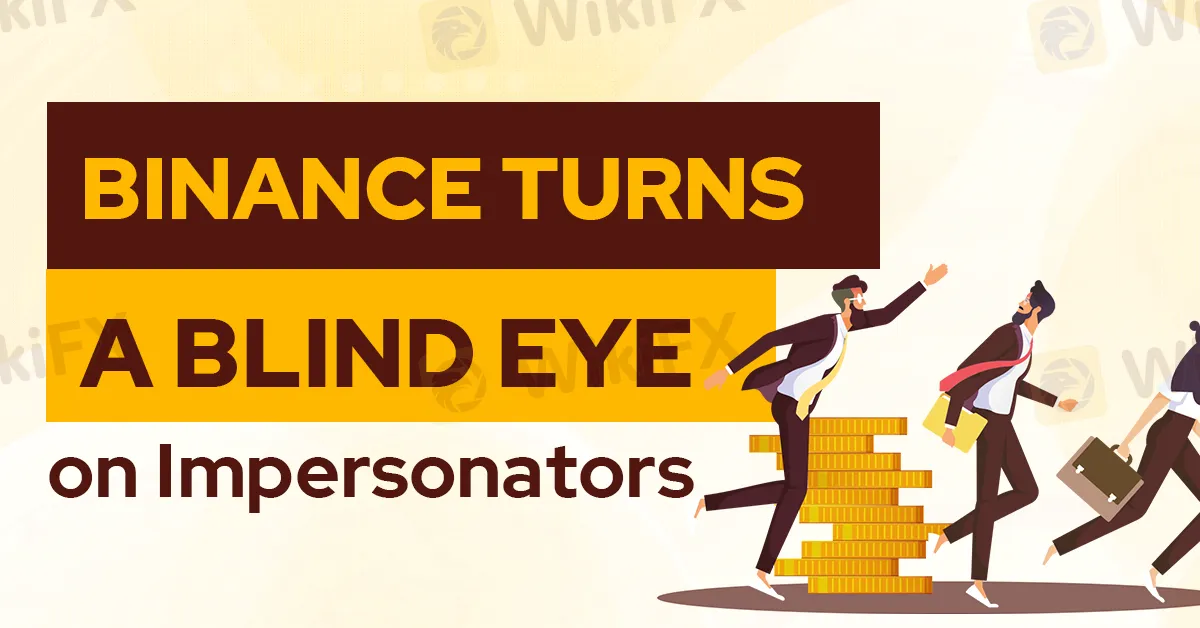简体中文
繁體中文
English
Pусский
日本語
ภาษาไทย
Tiếng Việt
Bahasa Indonesia
Español
हिन्दी
Filippiiniläinen
Français
Deutsch
Português
Türkçe
한국어
العربية
Binance Turns a Blind Eye on Impersonators
Abstract:Binance users navigate a cunning SMS scam enticing with lucrative rewards, unveiling the enduring challenges of phishing within the digital financial realm, while Binance contends that mitigating such scams on its platform is an unrealistic task.

Last week, Binance patrons received SMS messages enticing them to join a lottery with the prospect of winning up to 100 EUR in cryptocurrencies.
Despite these messages infiltrating threads containing official announcements from the exchange, they were, in fact, fraudulent. Binance users found themselves receiving SMS notifications towards the end of the week, falsely proclaiming victory in the “Binance Mystery Box” lottery.
In response, Binance promptly issued a cautionary message to its users, advising them to disregard any communications asserting to be from Binance and refrain from clicking on provided links.
The root of this deceptive scheme lies in the GSM system, permitting senders to arbitrarily fill in the sender name field. Unlike standard SMS applications that typically display the sender's phone number, companies often replace it with a textual name, such as “Binance.”. The absence of verification by operators enables fraudsters to use the same sender name as legitimate messages from Binance, leading recipients to trust the scam SMS as part of their message history.

These SMS scams, directed at cryptocurrency users, represent a standard phishing endeavour to extract sensitive data from unsuspecting victims. In a previous incident a few months ago, Binance users in Hong Kong suffered losses nearing $500,000 to scammers posing as Binance representatives, manipulating them into performing account verifications. Binance has also been alerting its customers to the escalating prevalence of investment scams, colloquially known as “pig butchering,” potentially linked to phishing attempts.
Binance noted that Poland has recently introduced regulations to mitigate the prevalence of this exploit, to some extent. This involves registering sender names and assigning them to specific entities by telecommunications operators.
While Binance remains vigilant and issues warnings to its users, rectifying the security loophole in SMS technology necessitates a modification to the entire GSM system, deemed an impractical endeavour. Cryptocurrency users are advised to maintain vigilance, dismiss suspicious messages, and rely on official announcements from reputable sources to shield themselves from falling victim to such scams.

Disclaimer:
The views in this article only represent the author's personal views, and do not constitute investment advice on this platform. This platform does not guarantee the accuracy, completeness and timeliness of the information in the article, and will not be liable for any loss caused by the use of or reliance on the information in the article.
Read more

Rising WhatsApp Scams Highlight Need for Stronger User Protections
UK consumers lose £2,437 on average to WhatsApp scams. Revolut demands stricter verification and AI monitoring to combat rising fraud on Meta platforms.

Georgia Man Charged in Danbury Kidnapping and Crypto Extortion Plot
Georgia man James Schwab charged in Danbury kidnapping tied to $230M crypto heist. Plot targeted couple for ransom after Miami altercation with son.

Bybit Shuts Down NFT Marketplace Amid Crypto Market Downturn
Bybit announces the closure of its NFT marketplace, citing efforts to streamline offerings. Discover the latest trends in the declining NFT market and its shift to utility-based growth.

Galaxy Digital Settles $200M in Luna Token Manipulation Case
Galaxy Digital pays $200M to settle Luna token manipulation probe by NY regulators, linked to TerraUSD’s 2022 crash, impacting crypto market stability.
WikiFX Broker
Latest News
The Withdrawal Trap: How Scam Brokers Lure Victims into Paying More
FCA to Investors: Think Twice Before Trusting These Brokers
Trump\s tariffs: How could they affect the UK and your money
Trump gambles it all on global tariffs he\s wanted for decades
TradingView Brings Live Market Charts to Telegram Users with New Mini App
Trump tariffs: How will India navigate a world on the brink of a trade war?
IG Group Acquires Freetrade for £160M to Expand UK Investment Market
U.S. March ISM Manufacturing PMI Released
Should You Beware of Forex Trading Gurus?
Vanuatu Passes VASP Act to Regulate Crypto and Digital Assets
Currency Calculator







